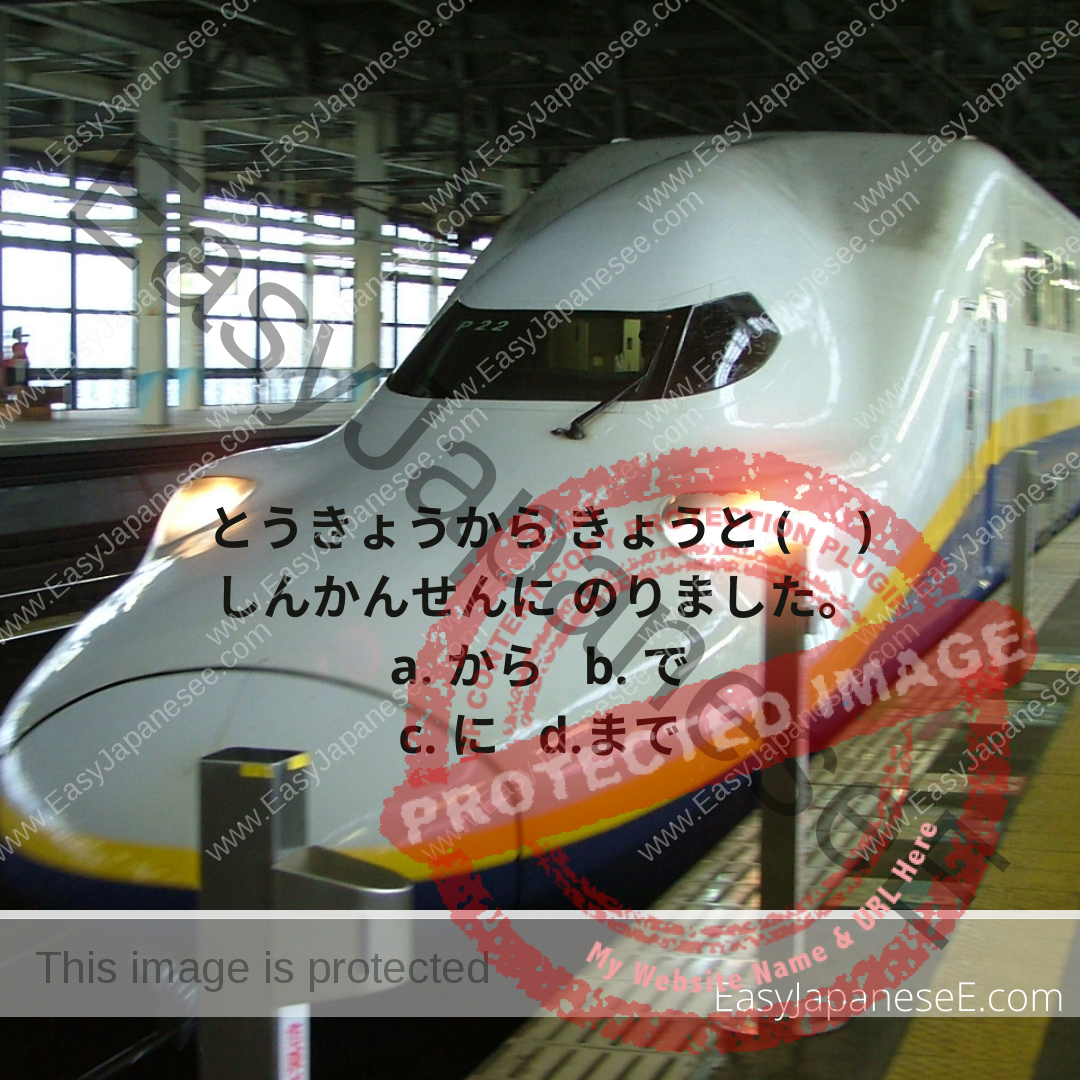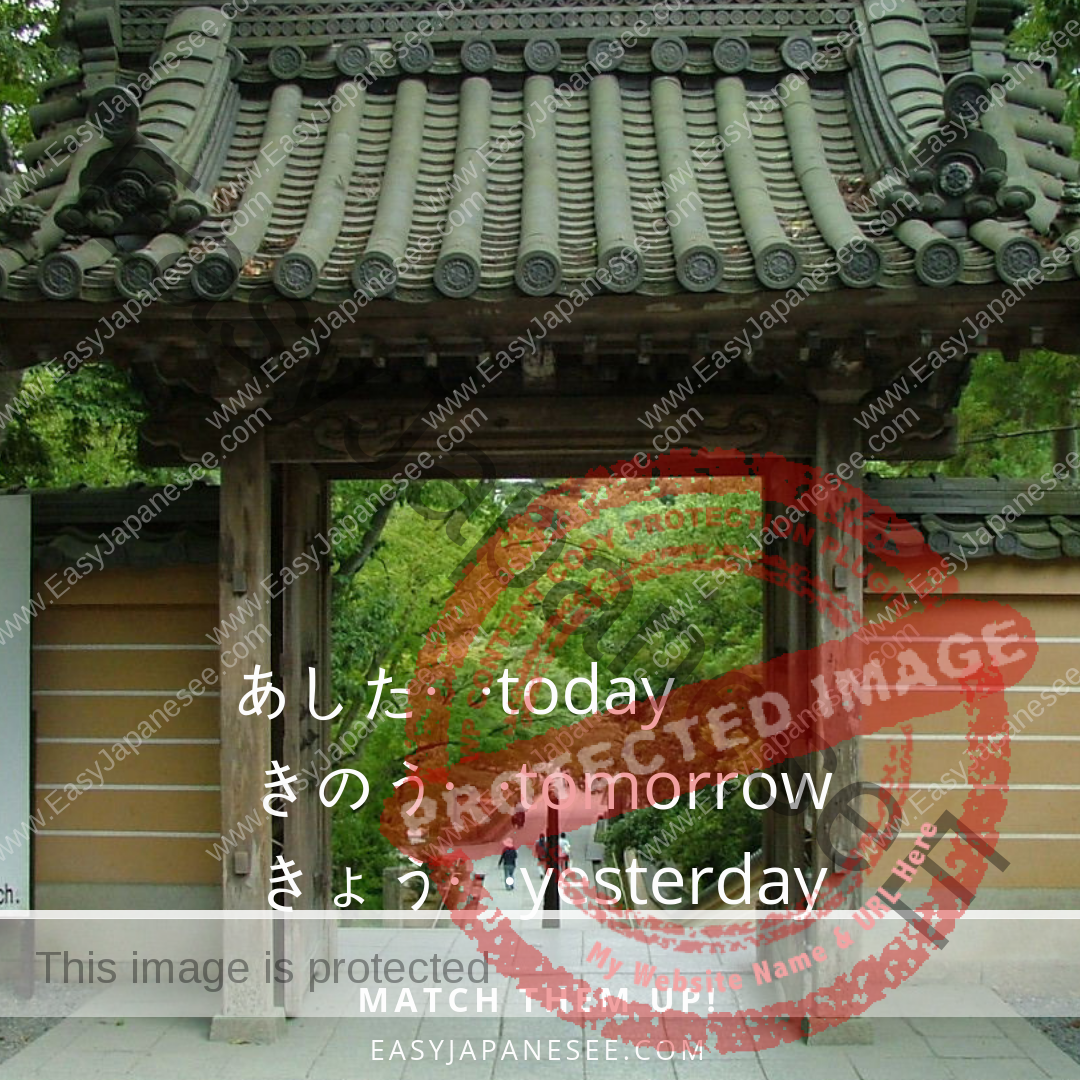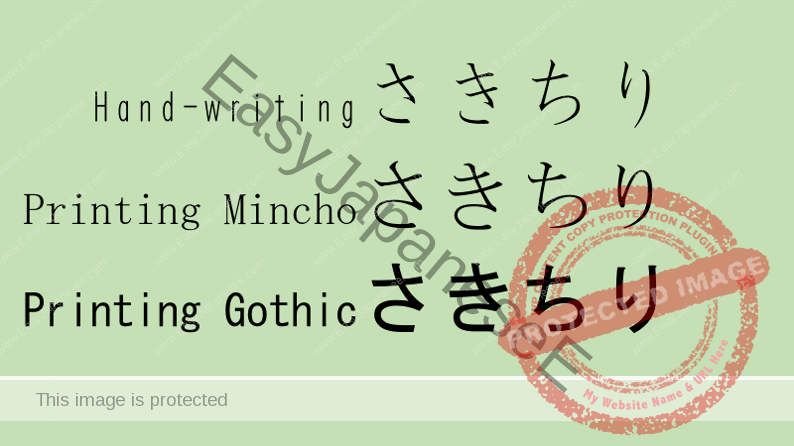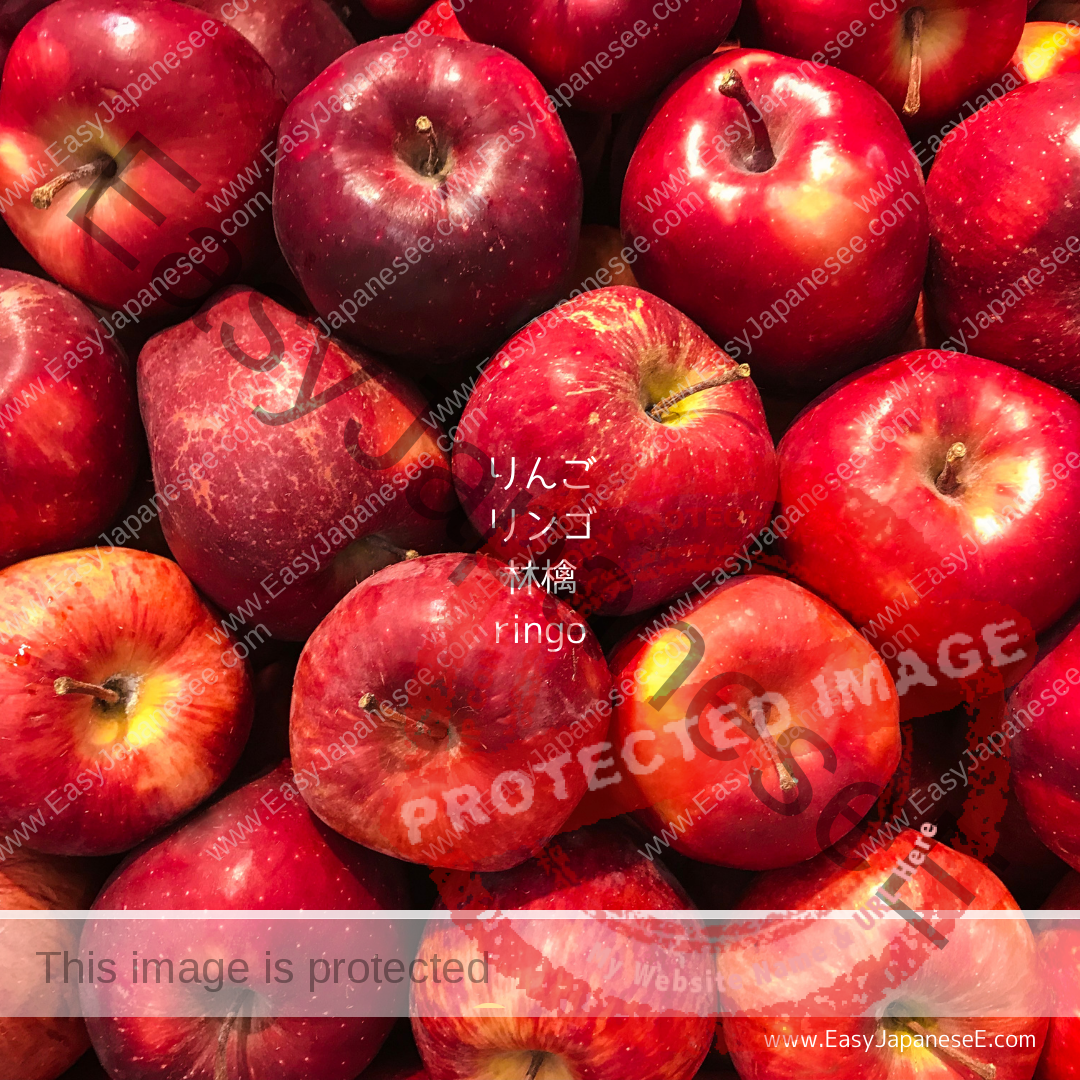Today’s Grammar Point: ~から~まで “Aから” means “from A” or “since A” and it can be used for both time and place.…


Today’s Grammar Point: ~から~まで “Aから” means “from A” or “since A” and it can be used for both time and place.…
It seems Japanese people like to set “xxx Day.” There is a day for almost everything, anything. Apparently today is…
The other day one of my students asked me if there are more i-adjectives than na-adjectives or vice-versa. I don’t…
On Monday this week, I talked about verbs, いきます/きます/かえります, which can be used with another verb stem and the particle…
Some Katakana letters are similar to one another. Especially these 2 pairs are confusing. "シ (shi) and ツ (tsu)," and…
I think it is reasonably easy to figure out ドライバー is katakana transliteration of "driver". And that can mean a…
いきます きます かえります These verbs mean “to go,” “to come” and “to return” respectively and they can be used in…
Next Monday, 24 September, is 中秋の名月(ちゅうしゅうのめいげつ )and is a Moon viewing day in Japan. Aristocrats in the Heian Period (the…

Learn yesterday, today, tomorrow and associated phrases together with “every day” “every week” etc.
As you may already know, Japanese does not have a future tense, so when you want to say something like…

Today’s blog is about Fonts we use in Japanese. When you are reading this blog, you realize the letter “a”…
ソフトクリーム が たべたい です。 ソフトクリーム が だいすき です。 What is ソフトクリーム? It is “Soft Cream”, so what? It is…
What would you say if you are asked なっとうがすきですか (do you like nattou?)? If you like it, then you…
Up until 2002, 15 September was the annual Respect-for-Senior-Citizens Day in Japan. The law changed and since 2003 it is…
These are basic vocabulary but not many textbooks have them in a list. delicious おいしい おいしい oishii awful まずい まずい…

If you get asked, よくコーヒーをのみますか。(Do you drink coffee often?), how would you answer that? I would say: はい、まいにちのみます。(yes, I drink…
Last week, I talked about “Udon”. Today I will talk about another popular lunch menu, “donburi”, though most of the…
Today is Katakana Tuesday and today’s word is パンツ. Yes, it is the katakana transliteration of the English word,…

The Japanese language used 4 different types of scripts – Hiragana, Katakana, Kanji and Roomaji. This post explains when to use which.
Last week I talked about “yaku/yakimasu” as a most common cooking verbs. Today, I will introduce other cooking related verbs.…
